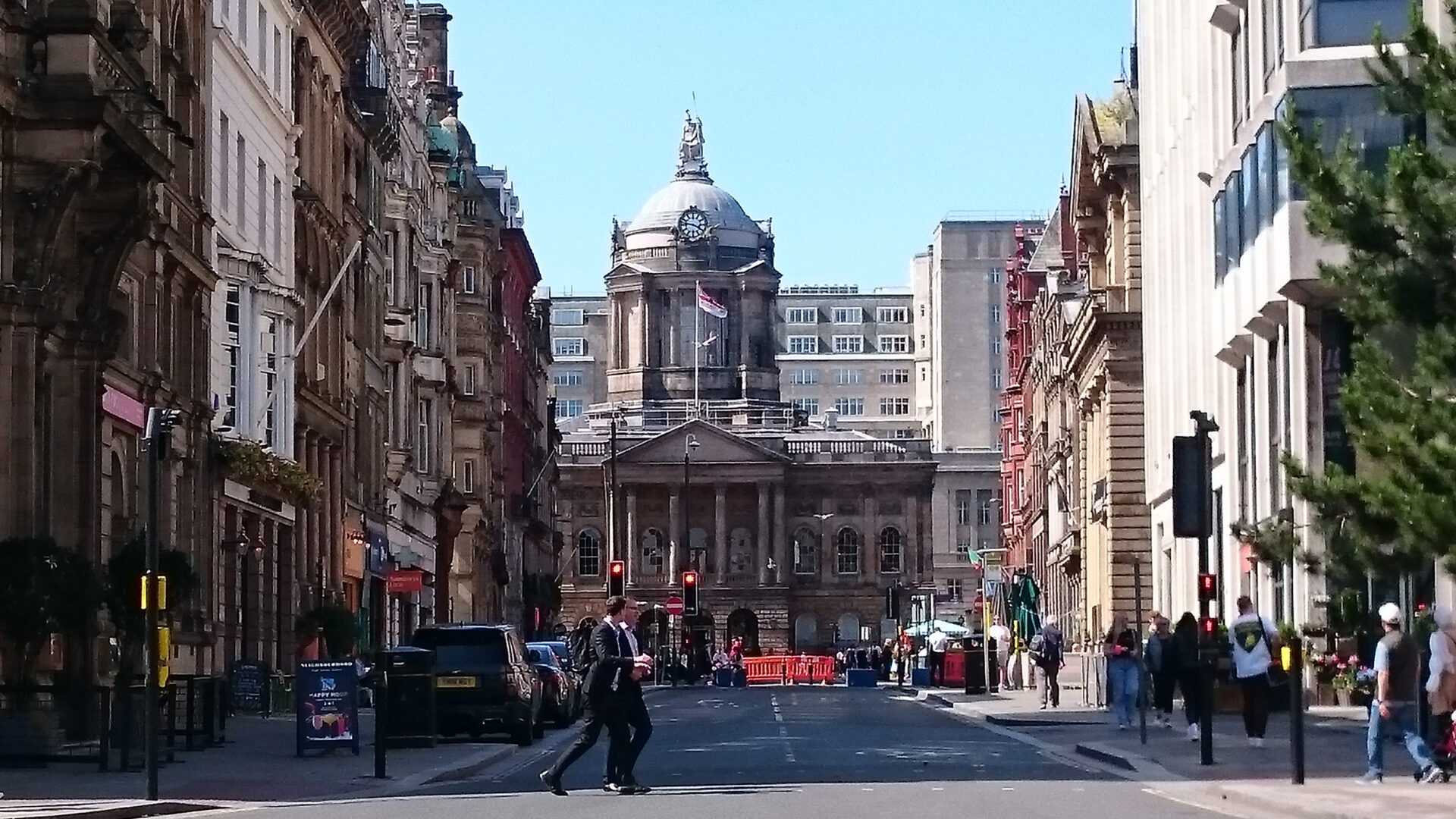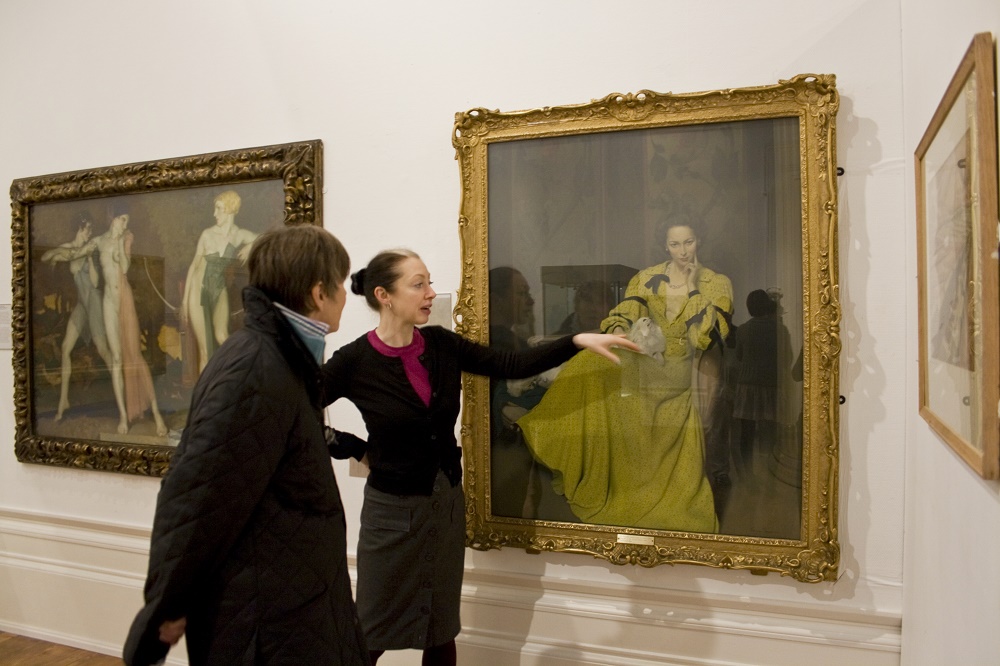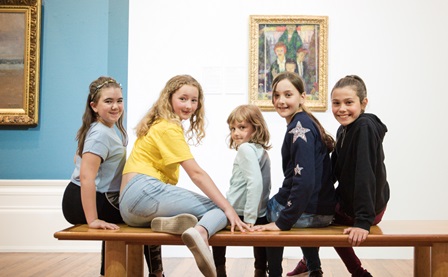
North West Reads Book 14: Ghost Town: A Liverpool Shadowplay by Jeff Young
This is a beautifully written memoir that examines the construction of memories from the sights and sounds of the surroundings in which the author grew up in. Jeff Young is a writer and documentary maker who was born in Liverpool in 1957. He grew up witnessing the change and development (not necessarily for the better in his opinion) of the fabric of the city over the course of the post-war years. As a child Young would accompany his mother on walks around Liverpool, exploring streets and buildings. They didn’t just explore the nice and neat parts; they went around the waste areas (areas that were still literally bomb sites left over from the Second World War) and into old unoccupied buildings.
Young’s mother worked for a local architect, Alfred Shennan, whose business was responsible for some of the buildings Young remembers fondly but that have since been demolished. Walking the same city today, long after his mother’s death, he seeks out these old buildings in order to trigger memories of his youth; but these memories have become harder to recall owing to post-war demolition and redevelopment that have altered Liverpool irrevocably.
His recollections of the past are a mixture of the romantic, the unsettling and the brutal. Young remembers his Grandparents dilapidated house in Everton, which he visited as a child during the 1950s, with its ceiling partly falling in. Their house was due to be demolished as part of the city’s programme of slum clearance. His Grandfather’s eyesight was gradually failing, coinciding with the disappearance of the Liverpool he knew at the hands of the post-war developers and town planners.
Young comments that memory is a bit like old Super-8 film that has deteriorated: fuzzy and unclear, faded in parts and with sections completely gone producing a broken, interrupted narrative of short clips and sequences. Memories can be deceptive. Young’s father had an industrial accident when Young was a child. He fell down a chimney at the Printing factory where he worked. In Young’s memory this happened at exactly the same moment that he had an accident on his bike, but he now knows that both these events happened several years apart. Other memories remain sharp and never leave you. Young was in a newsagent on Lodge Lane when armed robbers burst in and demanded cash from the assistant. During the robbery Young was pushed to the floor and the gun held to him. During this traumatic experience he had a strange out of body experience and later saw the ghost of his Grandfather. It took Young a long time to get over the experience, with the post-traumatic stress disorder he experienced leading to a fear of the sound of cars pulling up and the sight of young men walking together.
When still a child Young was shipped out with his family to a new house with mod cons in Maghull, and, like other news towns that sprung up around the outer areas of Liverpool in the 1950s and 60s they had few facilities and were full of building rubble and waste ground. This urban jungle was Young’s playground, a time when children had a great deal more freedom and less adult supervision than today. He and his friends explored building sites, canals, woods and abandoned farms, places that would be considered extremely risky to visit and off-limits nowadays. He recalls the fear and excitement generated by the nearby Ashworth Hospital for the criminally insane if the siren went off. They would wait as long as they dared before heading off home. He attended a fete held at the hospital opened by Jimmy Saville, who made jokes about ‘loonies’ and not getting locked in. He leaves the reader to ponder on what we now know about the man.
Young and his group of friends had to run the gamut of other gangs and school bullies at the drab, conformist Secondary Modern School he attended. It’s clear that Young was not inspired by his school or education, and he was in fact thrown out for refusing to wear the school uniform. Young was an autodidact who absorbed books, films, popular culture and beautiful architecture, creating his own curriculum.
Kes by Barry Hines was the first book that had a profound impact on Young as a boy, containing characters and a story that he could identify with. Young was more than aware that the fate of the novel’s main character Billy Caspar, an unfulfilled life of poverty and deprivation, could easily be his own. This novel led to a voracious reading habit, starting with Kes then onto the works of Stan Barstow including A Kind of Loving. Until these discoveries Young had not been aware that northern novelists writing about northern lives existed. He progressed onto Kafka and Kerouac, science fiction of writers such as Philip K. Dick and onto other modern classic writers. This reading habit would eventually lead to his own writing and film making career, but his first job was at the Council. Here he found a lax regime that allowed him to wander the city and find more written treasures in Atticus Bookshop and in the radical bookshop, News from Nowhere, which is still up and running on Bold Street. Walking the city today, either on his own or in the company of friends such as the writer Horatio Clare, Young traces the movements of many writers who passed through Liverpool and sometimes stayed a while, such as Thomas de Quincey, Herman Melville and the psychologist Carl Jung, who declared that Liverpool was the Pool of Life.
Parts of Liverpool in the 1970s and 80s were looking tatty and pretty well run-down, but there was a vibrant arts and cultural scene that Young tapped into, meeting people such as Bill Drummond who would form the KLF, and seeing hugely influential artists such as Captain Beefheart, Talking Heads, Alice Cooper and Lou Reed. The Cavern Club on Mathew Street had closed, but Liverpool now had another legendary venue, Eric’s. Mathew Street and the streets off it was an artistic hub, a down at heel area hosting Liverpool’s avant garde artist, writers, and musicians with venues such as the Science Fiction Theatre run by the actor Ken Campbell. It’s a far cry from the corporate, gentrified tourist attraction it now is, much to Young’s despair, a theme park full of stag and hen parties and dotted with ‘abysmal’ statues. However, other commentators may counter this with the argument that change is inevitable and in many cases is essential for social and economic progress and prosperity. I suppose gaining the correct balance, updating and regenerating a place but in a respectful and sympathetic way, preserving and celebrating the heritage and history, is the ideal for planners and authorities to aim for.
For Young the redeveloped Mathew Street is not the only example of cultural/architectural vandalism; he mentions the Victorian Market knocked down to make way for St John’s Shopping Precinct in the 1960s, and Clayton Square with its eighteenth-century Grade II listed buildings demolished and replaced by the New Clayton Square Shopping Centre. Young notes the destruction of the run down, but historic and beautiful, buildings of the city he remembers from his childhood explorations in the company of his mother. Shiny, new, and attractive these regenerations may be, but the city seems to have lost a bit of its soul and character. Young laments at the removal of the Art Deco cinemas on Lime Street and the building of a huge black box roof extension onto the top of the flatiron building formerly known as Millennium House, now a Shankly Hotel. How to recall his past when these triggers for memories are disappearing is something Young is trying to deal with as he explores the streets and spaces of Liverpool today.
Gentrification has not touched all parts of the city, however. Walking through Kirkdale trying to retrieve memories, but failing because the neighbourhood has been lost, the houses demolished and communities who inhabited them moved on and broken up, Young sees how rough the area is and feels nervous and out of place. He no longer belongs here and has become an outsider.
Young still explores the city, this time in the company of one of his daughters. In his mind’s eye her grandmother and other ghosts of their family, in particular his sister Val who he had just lost, accompany them. This type of interaction with urban surroundings is known as psychogeography, a term invented in 1955 by Guy Debord, a Marxist theorist, philosopher, filmmaker and one of the founder members of the Situationist Art Movement. Many of us tread the same routes every day, routes that become so familiar that we can fail to notice them, fail to look closely at the details of our everyday environment and so lose connection with them.
Young walks the city purposefully and consciously making connections with his own past and that of his family and friends, with the history of the urban landscape, and the lives of those who have walked the same paths in past times. It is understandable why Young is sad and at times angry at the destruction of so much of Liverpool’s urban landscape in the name of progress; the old city held such meaning for him, for his sense of self and identity, and his memories of his family.
On a recent visit to Liverpool, I had an experience that helped me understand Young’s point of view. I walked from the Bluecoat School, a beautiful eighteenth-century building that has been used as an art gallery for decades, and headed along School Lane in order to get to the Pier Head. I came to what is now a major shopping area called LA1, a place that did not exist when I was growing up and is completely new to me. I felt a little lost and disoriented and headed back in a direction I knew, returning to a familiar place, Derby Square; it was a slightly unsettling experience.
Liverpool is now ‘a city of investment, digital and technology sectors’, it is a city of business opportunities, of leisure ‘driving future prosperity’. But for Young the magic is leaving the city, leaving the alleyways and the waste lands. Young tells his daughter stories from his past so there will be some memories to pass on, but the physical reminders that accompany them are disappearing fast.

Friends of the Harris
Join us today
Help more of Preston’s people enjoy the Harris by becoming a Friend – and you’ll get closer to artists, curators and collections too.
Find out more
Support us
Your community needs you
A donation from you today will support local people, including those most in need, by helping to create #HarrisYourPlace for everyone.
Donate now
